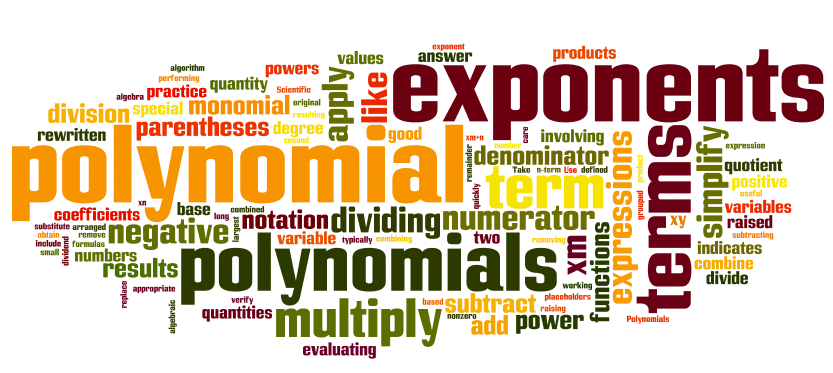The word ‘polynomial’ was introduced by Franciscus Vieta in Latin. Polynomial equations in Mathematics are of finite length constructed from variables and constants. The words ‘variables’ and ‘constants’ are concepts that have implications in Physics, language, and Metaphysics (beyond space and time). A variable is a linguistic form of variation. It is the thing that varies and is therefore identified as a variable. A variation of the word ‘variable’ is a ‘variant’. If a trend deviates from the normal range it is called deviation but if it is an acceptable variation, it is called a normal variant. Variables can be dependent or independent. Variables, on the whole, are also called ‘indeterminates’. A constant is a thing that does not change and is fixed. In English, the phrase ‘constancy of purpose’ comes to mind. In Mathematics, the constant term is the constant coefficient of an expression.
An expression of finite length is constructed out of variables and constants using the operations of addition, subtraction, multiplication and non-negative integer exponents. When your tutor gives examples from an ordinary language you will be able to relate to the concepts taught more easily. You will then see that there are different forms of expressions with the same essence. The difference in form arises out of the need for symmetry or asymmetry. This shapes the expression. The purpose behind giving an expression Mathematical form is to be as accurate as possible so that there is little room for implication. In ordinary language, implications do not need systematic calculation which is why there is plenty of scope for drawing wrong conclusions. The essence of Mathematics is to eliminate the tendency to jump from one line of thought to another as connections can be fallacious. The beauty of combining the features of ordinary language and Polynomial equations while teaching them is that the student finds the subject exciting and understands concepts. This leads to flow of experience in learning.
The aim of online tutoring is to achieve the flow experience in learners so that the pressure to learn gets replaced by the pleasure in learning. Such a replacement is difficult to achieve in a classroom, where both the students and teachers are under pressure. In online classes, however, the tutors are trained not only in the subject but also in the psychology of learners to help assimilate complex thought-process with carefree ease. Students who pursue online tutoring classes will see that the difference is not merely in the approach in teaching but also in that of bridging the gap between the teacher and the taught.



